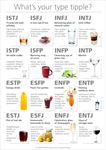Careers
How personality type affects team performance and job satisfaction
Global Marketing, The Myers-Briggs Company
New research sends clear message to team leaders
Happiness and profit are synergistic
Global Marketing, The Myers-Briggs Company
Why well-being is crucial to employee and organizational performance
Introducing The Myers-Briggs Company Podcast
Melissa Summer, The Myers-Briggs Company
The Myers-Briggs Company is launching a new podcast about psychology, personality, work life, and how to get the best from life.
Were you asked if you wanted to go back to the office?
Kevin Wood, The Myers-Briggs Company
If not, you might be part of a hybrid strategy that’s about to fail.
Social contracts, returning to the office and retaining your people in the new hybrid workplace
Melissa Summer, The Myers-Briggs Company
As employees return to the office, they’re expecting more flexibility in their social contracts with employers. How can HR help?
How to think like an entrepreneur
Rose Collins, Marketing Content Executive, The Myers-Briggs Company
Celebrating Global Entrepreneurship Week
Reflections on my first 18 months as an MBTI practitioner in the University of Oxford

Dr Mike Moss, Alumni Careers Programme Manager, University of Oxford
Reflections on the first 18 months of an MBTI practitioner.
Salary: secrecy or transparency?

Catherine Ellwood, Principal Consultant at OPP
The BBC, Norway and a tech start-up who is bucking the trend.
The introverted trainer | The Myers-Briggs Company

Michael R. Segovia, M.A., CPP Lead MBTI Certification Trainer
Any MBTI type can do any job and bring different strengths to the table
Decisions, self-confidence and the glass ceiling: can the MBTI framework help?

John Hackston, Head of Thought Leadership, OPP
Exploring the glass ceiling using MBTI data.
The rise of the robots

John Hackston, Head of Research at OPP
A robot workforce with personality? Where does the MBTI framework fit in?
How long will it be before Smartphones replace computers for employee assessment?

Robert McHenry - Chairman at OPP
1.5 billion people in the world own a smartphone. That’s almost 20% of the world’s population; and in the US and Europe, 60% of the population own one. Such a ubiquitous device has become part of our daily lives. Many of us have it on hand at all times to check the weather forecast, get directions, access our text and email messages and read the latest news. Indeed, the average user spends three hours per day on a smartphone and 15% of all global internet traffic originates from smartphones.
Digital badges

Robert McHenry - Chairman at OPP
How do you best represent yourself to potential employers? How do you bring your professional reputation to the forefront? Up to now, the answer has been to craft and polish a CV. However, we know that prospective employers are likely to spend just eight seconds reading each CV submitted with a job application. The new way to get yourself noticed is to display your qualifications on a site like LinkedIn with the use of digital badges.
Top five blog articles of 2014

OPP Ltd
Visits to our Personality Matters blog were at an all-time high in 2014, and we covered a wide range of topics in our weekly posts. Over the last 12 months we've talked about the best MBTI-based books and the various resources available for L&D teams. We’ve promoted Movember, and we’ve commented on the Paul Flowers furore. We've also continued to thrive as thought leaders in a diverse range of workplace psychology issues, from recruitment and assessment centres to polarity management. But what are the top five posts that readers have returned to again and again?
Celebrate with 25 free resources for practitioners

OPP
Few things in life are free – but OPP has some really cool free resources to support you in your work! To help celebrate our 25 years in the business, we’ve taken a trawl through the various goodies available for zero outlay on our website. They range from white papers and feedback materials to fun quick guides and infographics – many of which can also be found on our practitioner downloads page.
Psychometric testing: why nobody has to miss out

John Hackston, Head of R&D at OPP
There is a large and growing body of evidence that psychometric tests and questionnaires are among the best recruitment tools you can use. Incorporating psychometric tools on top of structured interviews and other objective assessments adds real value by increasing the quality of each hire – as well as helping you to avoid big recruitment mistakes. So it is good news that the most recent CIPD Resourcing and Talent Planning Report shows that over half of all the organisations surveyed do use ability tests or personality questionnaires in selection.
The BBC Bike Test – heading in the wrong direction

Rob Bailey, Managing Consultant at OPP
We all enjoy fanciful nonsense from time to time. Perhaps as a child you held a buttercup under a friend’s chin and declared that they liked butter. Some of these myths we grow out of, others we come to cherish; many of these are the foundations of pseudoscience. Unfortunately, the BBC’s journalists don’t seem immune. In my humble opinion, the latest offering from the BBC's Business section is the equivalent of holding a cow under your friend’s chin to see if they like milk.
You don't have to be motivated to work here, but it helps!

Betsy Kendall, COO and Head of Professional Services, OPP
According to a recent CIPD report, job turnover has slowed significantly over the past 15 years. This means that, in general, people are choosing to stay in their current roles rather than make voluntary exits (ie resignations and retirement). On the surface it might appear to be nothing but good news for an organisation that much-valued members of staff are choosing to stay. However, for this to be a wholly positive trend, people need to be staying put for the right reasons...
Would you rather go on a date with Apple or McDonalds?

Robert McHenry, Chairman at OPP
That’s one of the questions I posed to delegates at the European Association of Test Publishers (E-ATP) at their annual conference two weeks ago. I’ll tell you later how they answered. I was looking at the future of the recruitment industry and how the method of searching for top talent has been changing rapidly over the past two years.
From Monday blues to Monday rock

Anna Czaplewska, Support Consultant, OPP and Betsy Kendall, Chief Operating Officer, OPP
Look around you – how many people can you see truly enjoying their jobs? How many of your friends tell you about their working day with joy and excitement? Sadly, the majority of people in the UK feel they are in the wrong job or that they are not tapping into their full potential. This perception is common among new job starters, who quickly become disillusioned with the reality of their chosen career, as well as among more senior employees who, with time and increased self-awareness, often begin to realise the misfit between their strengths or interests and the job they have chosen.
"Dance for me, then tell me how many ping-pong balls would fit in this room!" - the Interview Question Hall of Shame

Rob Bailey, Managing Consultant, R&D, OPP
Imagine you’ve turned up for an interview; you’ve prepared carefully, you’ve thought about your strengths, weakness, and examples of your competence in different areas. The interviewer greets you and then says to you: “Dance for me”, or: “See the large Telecom Tower, over there - if it fell over, could it hit us?”, or: “How many ping-pong balls do you think would fit in this room?” All of these are real-life examples of recruitment interview questions or demands that someone, sometime, thought were a good idea.
The OPPrentice: the entrepreneurial top five

Leonie Nicks with Rob Bailey
With the final of The Apprentice tonight we ask: what does it take to be an entrepreneur? The gruelling process of The Apprentice may entertain us, but it’s a long way from answering the question. So we’ve taken on the challenge and devised our own ‘Entrepreneurial Top Five’.
Ambition and Personality - how important are they for career success?
Paul Deakin, Senior R&D Consultant at OPP
OPP recently carried out research looking at the extent to which ambition and personality predict career success. It is often assumed that the three elements are linked, but this was an opportunity to explore the evidence.
When I grow up I want to be... Personality and university course choice

Paul Deakin, Senior R&D Consultant at OPP, with Tatiana Gulko
University application figures in England have taken a plunge following the recent increase in university tuition fees. Applications for a university place fell by 8% in 2012, and were the lowest they had been in six years. Given the financial burden a university education now entails, it has never been more important for a prospective university student to feel confident that they are embarking on the right course. But whilst an array of research exists on the subject of career choice in general, little is known about how students choose their university course. Universities in turn want to be confident that the students they recruit will be satisfied with their chosen course, and see their studies through to fruition – so we decided to find out how personality affects young people’s course choice.
Where's the good careers advice when you need it?
Betsy Kendall, Chief Operating Officer and Head of Professional Services at OPP
Employers despair at how unprepared graduates are, and how ill-equipped they seem to be for taking control of their career paths and longer-term development. Modern companies expect individuals to be in the driving seat, to know themselves and to have a clear idea of what they want to achieve. And yet, without good career services in schools and colleges, how can young people get the insights and self-knowledge they so desperately need?
The "Big One"

Rob Bailey, Managing Consultant at OPP
How comfortable would you feel about your personality being reduced down to just one score from 1 to 10? The top end of the scale would describe a more desirable personality, the bottom end... well, sorry... undesirable. Perhaps you could wear your number on a badge. Surely this would save a lot of time at cocktail parties and speed-dating events?
Is graphology a valid recruitment method?
Rob Bailey
If you happened to be listening this morning to BBC Radio 4’s award-winning news and analysis programme Today, you may have heard claims that handwriting analysis can help you make better recruitment decisions.
During the programme, a graphologist was featured who made some impressive claims for the effectiveness of this method. Proponents of graphology suggest that the distinctive shapes of our handwriting give us very specific insights into our personalities, and therefore our potential fit with particular jobs.
This rings a few alarm bells with psychologists working in the psychometrics industry. We too claim to be able to make accurate predictions about future job performance using the tools and skills available to us… but are we really using similar methods? And can graphology really make plausible links between handwriting and fit with a particular role?
The selection interview and use of psychometrics: debunking some myths and misconceptions
Penny Moyle
Using psychometrics in selection still polarises opinion. OPP's CEO Penny Moyle sets out to debunk some myths.
A lost generation?
heathercoop
Reports suggest that rising youth unemployment is creating a ‘lost generation’ of young people.
Unconscious bias
robertmchenry
Unconscious bias influences the choices we make about others in our everyday lives.
Recruitment gets the 3D effect
robbailey
New and innovative approaches to recruitment have real benefits, but should not replace traditional methods.
The importance of self-presentation
pauldeakin
Regardless of gender, physical apperance has an evident effect on how people are treated in the workplace.
The end of the graduate milkround?
opp
Employers offering graduate training schemes and even tailored degree courses to recruit and on-board their staff invest a lot of money in developing a 'tame' working population. But what can these employers do to ensure they retain and motivate those employees that have been brought in at such an early age?
Are Gen Y corporate prisoners?
betsykendall
Members of Gen Y who have been stuck in career plateaus are likely to try and move on to bigger and better things once we're out of recession.
Mythbusting: you can tell a lot about someone from their handshake
pennymoyle
Contrary to popular belief, a person's handshake doesn't reveal much at all about their personality.
Mythbusting: in recruitment, eligibility does not mean suitability
pennymoyle
Though a candidate may, on paper, have all the qualities required for a role, their personality may not be as suitable.
Categories
- B Corp
- Care
- Careers
- Coaching
- Communication
- Conflict management
- CPI260
- Current affairs
- Decision-making
- Emotional intelligence
- FIRO
- Infographics
- Leadership
- Leadership development
- Managing change
- Managing stress
- MBTI
- Onboarding
- Personal development
- Podcasts
- Recruitment
- Social media
- Sport
- Strong
- Team development
- TKI
- Top tips
- Training